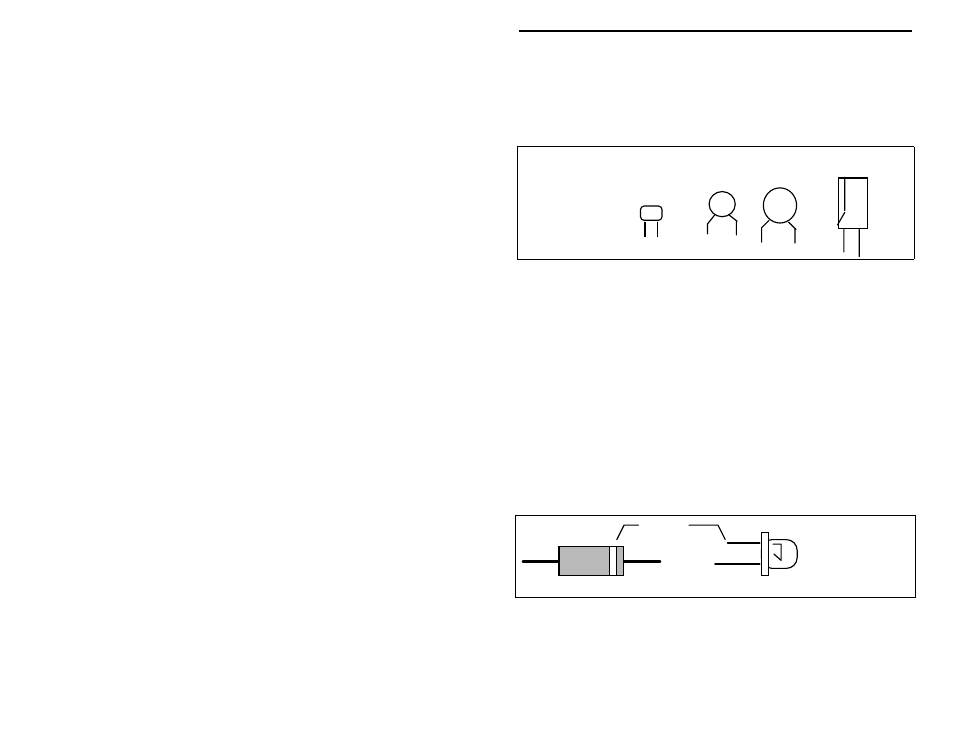Vectronics VEC-422K User Manual
Page 6

VEC-422K Owner's Manual
SCA Decoder Kit
4
and fatter at the ends than resistors. When doing your inventory, separate out
any chokes and consult the parts list for specific color-code information.
Reading Capacitors: Unlike resistors, capacitors no longer use a color code for
value identification. Instead, the value, or a 3-number code, is printed on the
body.
Multilayer
271
(270 pF)
Ceramic Discs
|
|
1uF
35V
+
-
104
Electrolytic
1 uF
10 pF = 100
100 pF = 101
1000 pF = 102
.001 uF = 102*
.01 uF = 103
.1 uF = 104
Value Code
102
(.001 uF) (.1 uF)
As with resistors, it’s helpful to sort capacitors by type, and then to arrange them
in ascending order of value. Small-value capacitors are characterized in pF (or
pico-Farads), while larger values are labeled in uF (or micro-Farads). The
transition from pF to uF occurs at 1000 pF (or .001 uF)*. Today, while most
monolithic (multilayer) and disc-ceramic capacitors are marked with a three-
number code, you may still find a .1 uF capacitor marked either “104” or “.1”.
For three digit codes, the first two digits indicate a numerical value, while the
last digit indicates a multiplier (same as resistors). The value is in pF; thus a
capacitor marked “104” is 100,000 pF, or .1 uF.
Electrolytic capacitors are always marked in uF. Electrolytic capacitors are
polarized devices and must be oriented correctly during installation. If you
become confused by markings on the case, remember the uncut negative lead is
slightly shorter than the positive lead.
Diodes: Diodes are also polarized devices that must be installed correctly.
Always look for the banded or cathode end when installing, and follow
instructions carefully.
Cathode
Diode
LED
(shorter Lead)
Transistors: If transistors are installed incorrectly, damage may result when
power is applied. Transistors in metal cases have a small tab near the emitter
lead to identify correct positioning. Semiconductors housed in small plastic
cases (TO-92) have an easily-identified flat side to identify mounting orientation.
Many specialized diodes and low-current voltage regulators also use this type
